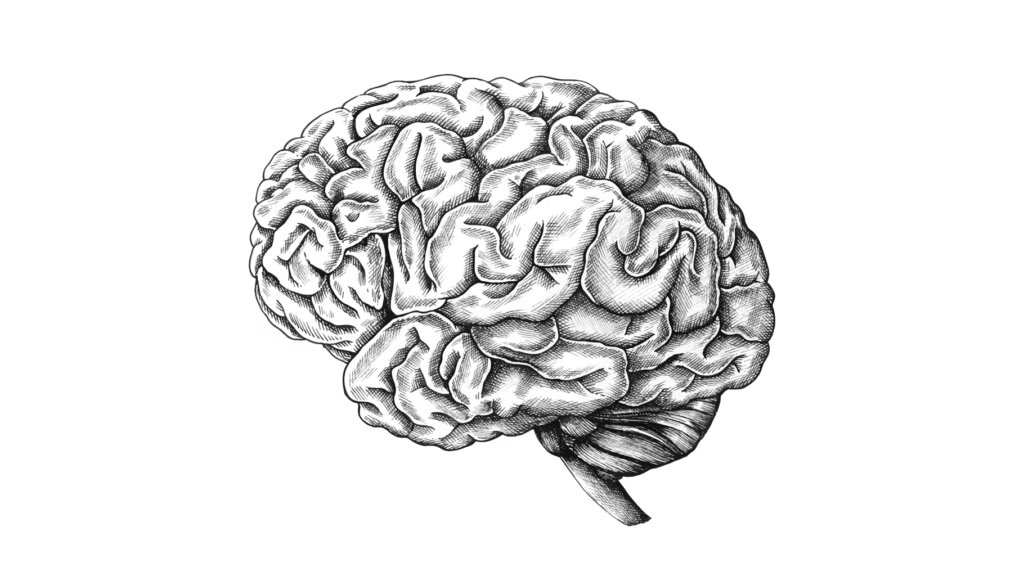
Why we forget things?
Have you ever walked into a room and completely forgotten why you went there? Or struggled to recall someone’s name you just met? Don’t worry — this happens to everyone. Forgetting isn’t a flaw in your brain; it’s actually a natural, essential part of how your brain works.
Understanding why we forget things, and learning how to remember what really matters, can make a huge difference in our daily lives, learning efficiency, and even personal growth. Memory is not just a mental filing cabinet—it’s a living, adaptive system that evolves with every experience.
Why We Forget: The Brain’s “Cleaning System”
Our brains are incredible, but they don’t store every single detail forever. In fact, every night while we sleep, our brain actively deletes some memories. This process is not random — it’s a smart strategy that allows the brain to stay efficient, focused, and adaptable.
This process is called synaptic pruning. Think of it like cleaning your computer’s hard drive: every connection between brain cells (neurons) represents a memory or a piece of information. The more you use a connection, the stronger it becomes. The ones you don’t use? Your brain weakens or removes them to free up space for more important memories.
For example, you might not remember what you had for lunch three weeks ago, but you vividly recall a childhood vacation or a major life event. Your brain has determined that some memories are worth retaining, while others can be safely discarded.

Forgetting as a Feature, Not a Bug
Forgetting is not a flaw—it is a feature of a highly efficient brain. By selectively pruning unnecessary details, your brain ensures that important memories are accessible and that cognitive resources are not overwhelmed. Imagine trying to navigate your day if every minor detail you encountered remained stored in your memory; the mental clutter would make focusing and learning much more difficult.
Interestingly, psychologists have found that forgetting helps creativity. When your brain removes irrelevant details, it can form new associations and insights more easily, allowing you to think flexibly and solve problems in novel ways.
The Science Behind Forgetting
Memory is complex and distributed across multiple regions of the brain. Different types of memories—facts, skills, and emotional experiences—are stored and processed in different areas:
Hippocampus: Crucial for forming new memories and organizing them for long-term storage. Damage to this area can result in an inability to form new memories, a condition known as anterograde amnesia.
Prefrontal Cortex: Helps with recalling information, decision-making, and planning. It’s the part of your brain that allows you to search for memories deliberately, like trying to recall a friend’s name or a historical fact.
Amygdala: Attaches emotional significance to memories, which is why events that make us feel fear, joy, or surprise are often remembered more vividly.
Cerebellum and Basal Ganglia: Important for procedural memory, such as learning how to ride a bike, play an instrument, or type on a keyboard.
During sleep, especially during deep sleep and REM cycles, the hippocampus reviews the day’s memories and decides which ones to consolidate into long-term storage and which ones to prune. This is why a good night’s sleep can dramatically improve recall and learning efficiency. Research shows that sleep deprivation impairs memory consolidation, making it harder to retain new information.
Why We Forget Specific Things
While forgetting is natural, some types of forgetting are particularly common:
Transient Memory Loss: Forgetting where you put your keys or the reason you entered a room is often due to attention lapses, not memory failure. The brain didn’t encode the memory strongly in the first place.
Interference: Old memories or similar pieces of information can interfere with new memories. For instance, learning a new phone number may make it harder to remember a recently learned one.
Decay: If a memory isn’t used or recalled for a long time, the neural connections that hold it can weaken naturally.
Stress and Anxiety: High stress levels release cortisol, which can disrupt the hippocampus and impair both short-term and long-term memory.
Understanding these mechanisms helps us develop strategies to improve memory and reduce unnecessary forgetting.
How We Remember What’s Important
If forgetting is natural, how do we ensure our brains retain what truly matters? The key is to actively signal to your brain that certain memories are important. Here are evidence-based strategies:

1. Repetition and Practice
One of the simplest and most effective ways to strengthen a memory is repetition. The more you revisit information, the stronger the neural connections become. Techniques include:
Reviewing notes multiple times while studying.
Rehearsing a speech or presentation before delivering it.
Repeating important dates, names, or tasks to yourself.
This process, called spaced repetition, has been proven to be far more effective than cramming. By spacing review sessions over time, your brain has the opportunity to consolidate the memory and strengthen long-term retention.
2. Emotional Connection
Emotion plays a crucial role in memory. The amygdala tags emotional experiences as important, signaling to the hippocampus that these memories should be stored for the long term.
Ways to leverage emotion for better memory:
Attach a personal story or feeling to what you want to remember.
Visualize positive outcomes or consequences of remembering the information.
Use vivid imagery or even humor to make facts more memorable.
For example, students often remember concepts better when they relate them to personal experiences or feelings rather than memorizing abstract definitions.
3. Organize and Associate
Memory is stronger when information is connected to existing knowledge. This principle, called association, allows the brain to link new information with old, creating networks that are easier to recall.
Link new information to familiar concepts or experiences.
Group similar items together (chunking). For example, phone numbers or credit card numbers are easier to remember when divided into smaller groups.
Create mind maps, diagrams, or lists to visualize connections.
Studies show that associative memory techniques significantly improve recall, especially for complex or abstract material.
4. Sleep and Healthy Lifestyle
Since memory consolidation happens during sleep, good sleep hygiene is critical. A consistent sleep schedule, avoiding late-night screen time, and reducing stress all enhance the brain’s ability to store memories.
Other habits that support memory:
Regular exercise: Increases blood flow to the brain and promotes the growth of new neurons.
Balanced diet: Nutrients like omega-3 fatty acids, antioxidants, and vitamins support cognitive function.
Mindfulness and meditation: Improve focus, attention, and working memory.
Interestingly, research suggests that short naps can also enhance memory retention, especially for procedural tasks or newly learned information.
5. Use Multisensory Techniques
Engaging multiple senses can make memories more robust:
Read information aloud while writing it down.
Use color-coding, diagrams, or visual aids.
Listen to music associated with study material to create contextual cues.
The more senses involved in encoding a memory, the more retrieval pathways your brain has, making it easier to recall later.
Memory Across the Lifespan
Memory changes with age, but forgetting doesn’t necessarily mean decline.
Children and young adults often have highly plastic brains, making it easier to form new memories but also prone to distraction.
Middle age can bring occasional lapses, often due to stress, multitasking, or information overload.
Older adults may experience slower recall, but lifelong mental activity—reading, learning, puzzles—helps maintain memory strength.
Interestingly, studies show that social interaction and novelty can protect memory function. Engaging with new experiences and maintaining relationships stimulates the brain and keeps it flexible.
Turning Forgetfulness Into Strength
Forgetting can be frustrating, but it is a sign that your brain is working efficiently. By pruning unnecessary details, your brain prevents cognitive overload and focuses on what truly matters.
The key is to make memories meaningful:
Revisit and rehearse information regularly.
Connect facts to emotions or personal experiences.
Organize and associate information in ways that make sense to you.
Prioritize sleep, nutrition, exercise, and mindfulness.
With these strategies, you can train your brain to retain important memories while letting go of the clutter. Forgetting isn’t failing — it’s smart, efficient, and adaptive.

The Garden Analogy
Think of your memory as a garden. The brain prunes what’s unneeded, but with care, repetition, and attention, important memories grow strong and flourish. Just as a gardener waters and tends to select plants, you can nurture the memories that matter most.
Watering = repetition and review
Sunlight = emotional engagement
Fertile soil = healthy habits (sleep, exercise, nutrition)
Weeding = letting go of trivial details
By consciously tending your memory garden, you ensure that what truly matters thrives for years to come.
Digital Tools for Memory
In today’s world, technology can help supplement natural memory processes:
Spaced repetition apps like Anki or Quizlet for learning new skills or languages.
Reminder apps and calendars for important dates or tasks.
Mind-mapping software to visualize connections and organize information.
Brain-training games to keep working memory sharp.
While technology can’t replace your brain, it can help reinforce, organize, and prompt memories, making it easier to navigate the information-rich modern world.
Conclusion
Forgetting is not a weakness but a feature of a highly efficient brain. It allows us to focus on what matters, make space for new learning, and even enhance creativity. By understanding how memory works—through repetition, emotional connection, organization, healthy habits, and sleep—we can retain what truly matters while letting go of the rest.
Memory is like a living garden: with care and attention, the important memories flourish, while the unnecessary ones fade away. By embracing both the brain’s pruning system and our own strategies for remembering, we can turn forgetfulness into a strength, optimize learning, and enjoy a sharper, more resilient mind throughout life.
About the Author
This article was prepared by the IRA Studios editorial team, creators of high-quality 3D educational visualizations designed to simplify complex ideas through clear and engaging visuals.
Watch the Full 3D Animation
To explore all of these processes in 3D, check out our detailed 3D Animation video.
Want to learn more through visual storytelling? Check out our detailed 3D explanation blog on Is Swallowing Gum Dangerous?
Useful Link: How Memory Works-Cleveland Clinic